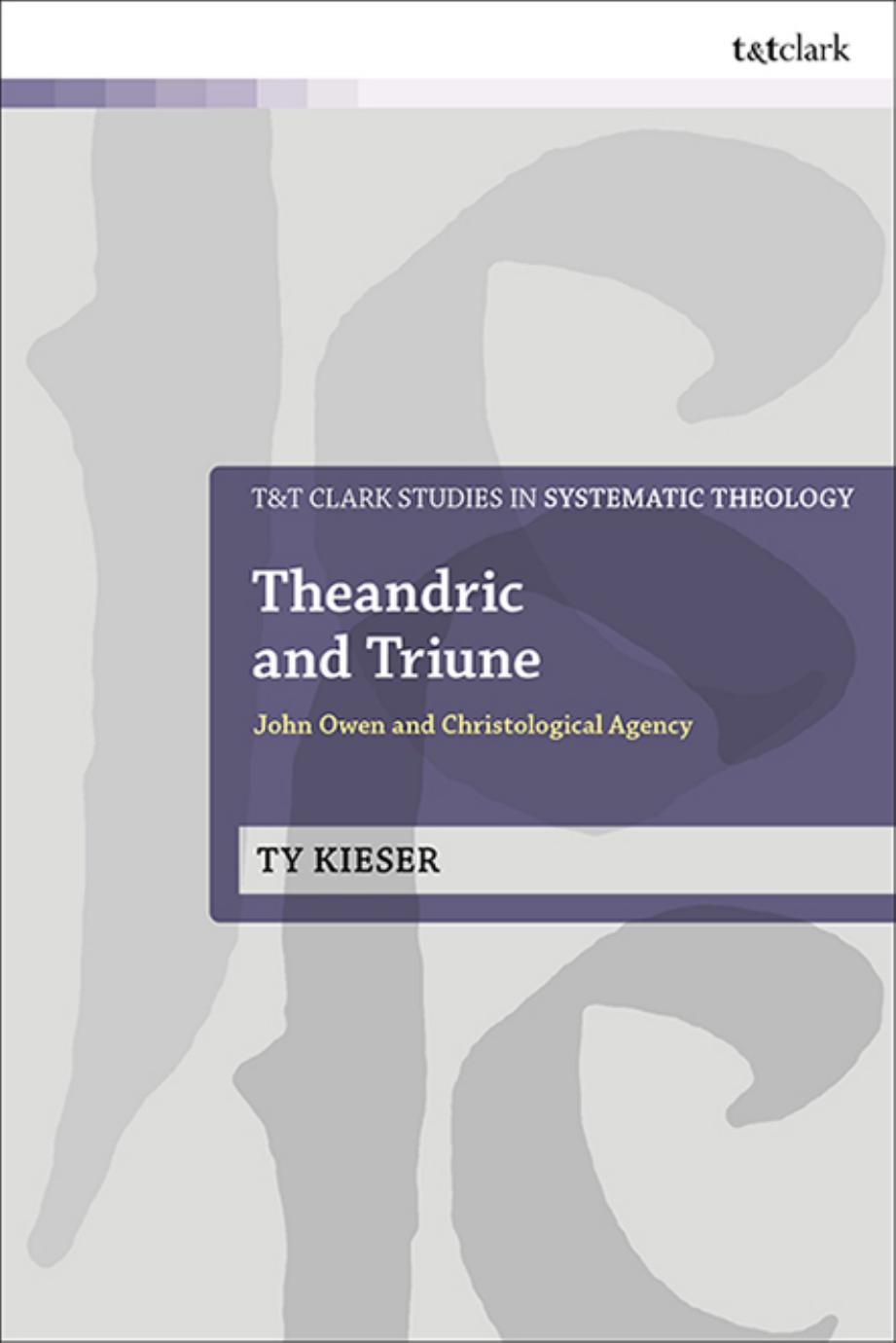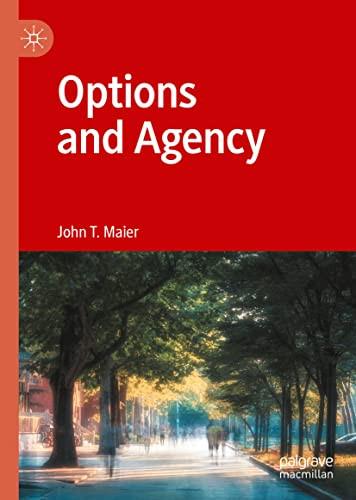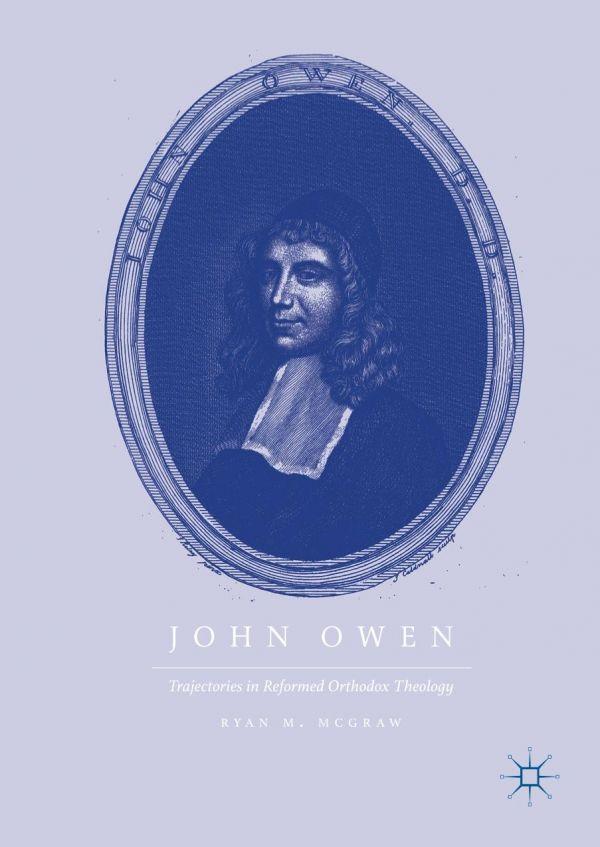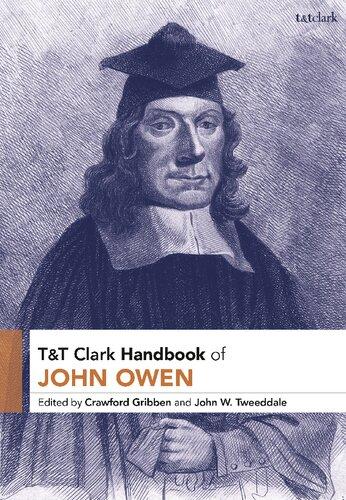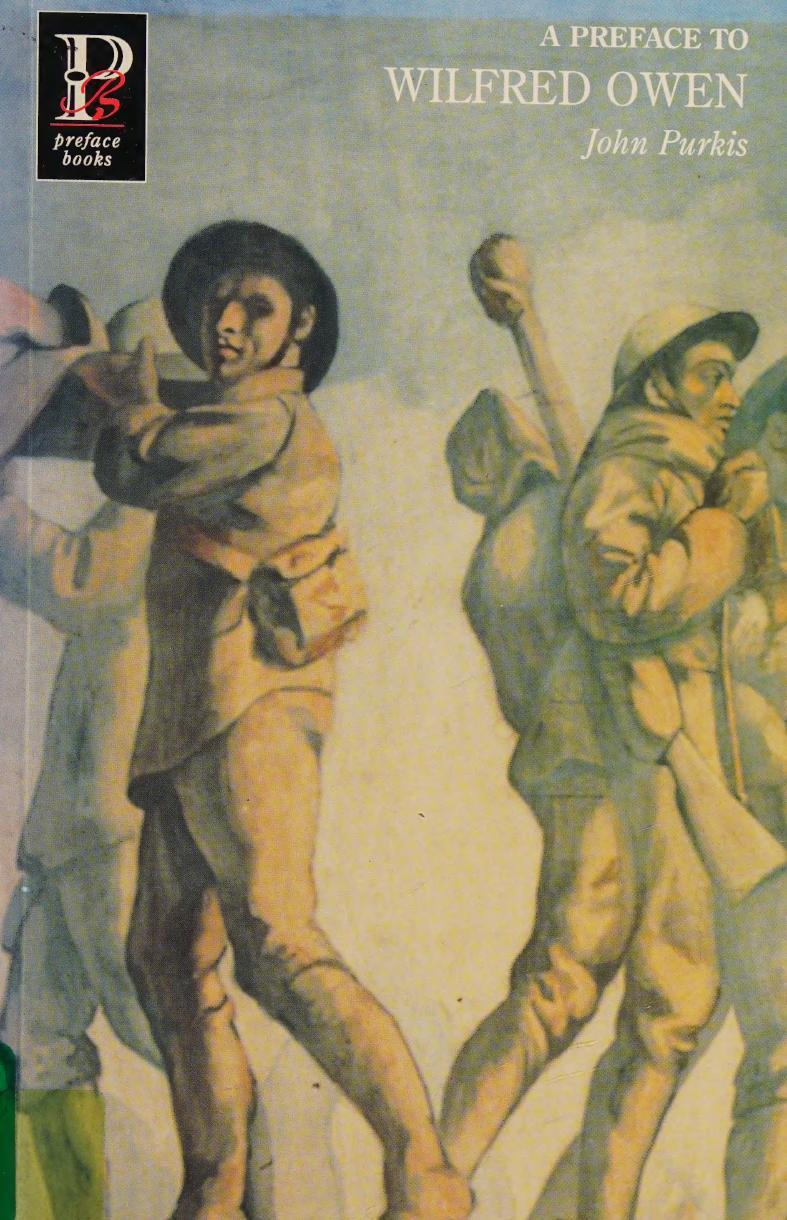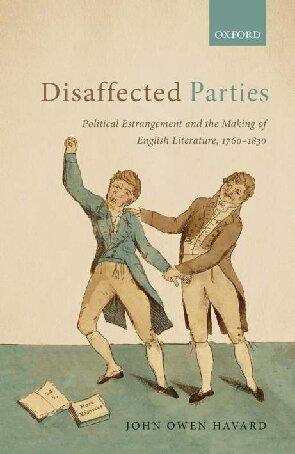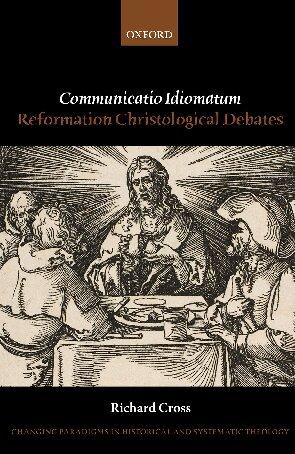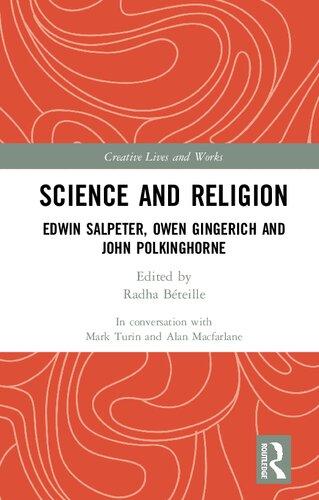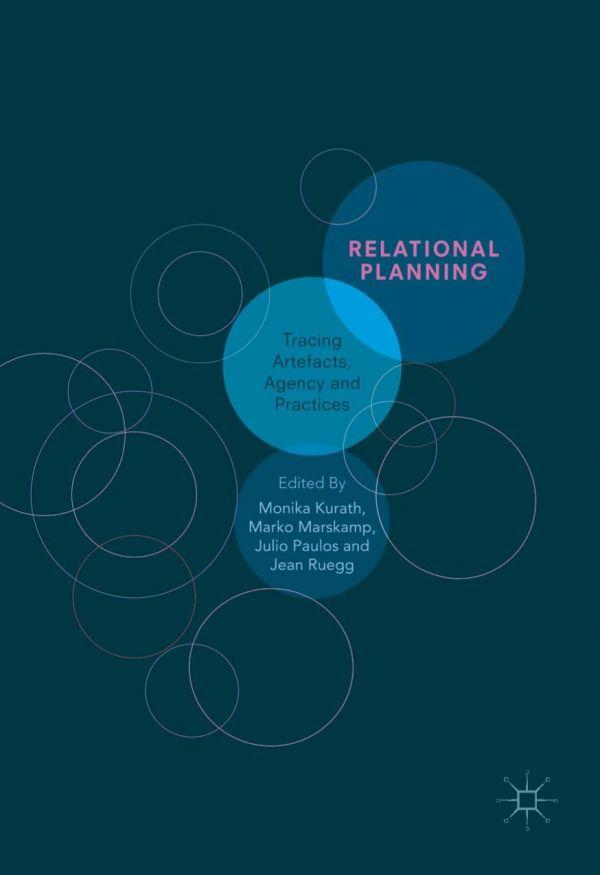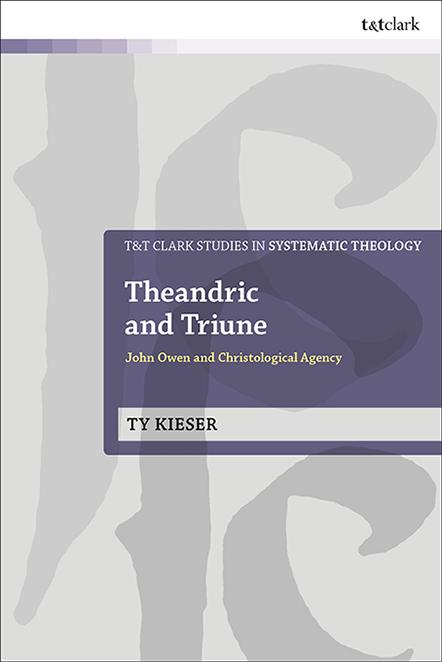THEANDRIC AND TRIUNE
T&T Clark Studies in Systematic Theology
Edited by Ian A. McFarland
Ivor Davidson
Philip G. Ziegler
John Webster†
Volume 40
THEANDRIC AND TRIUNE
John Owen and Christological Agency
Ty Kieser
T&T CLARK
Bloomsbury Publishing Plc
50 Bedford Square, London, WC1B 3DP, UK
1385 Broadway, New York, NY 10018, USA
29 Earlsfort Terrace, Dublin 2, Ireland
BLOOMSBURY, T&T CLARK and the T&T Clark logo are trademarks of Bloomsbury Publishing Plc
First published in Great Britain 2024
Copyright © Ty Kieser, 2024
Ty Kieser has asserted his right under the Copyright, Designs and Patents Act, 1988, to be identified as Author of this work.
For legal purposes the Acknowledgments on pp. xi–xii constitute an extension of this copyright page.
All rights reserved. No part of this publication may be reproduced or transmitted in any form or by any means, electronic or mechanical, including photocopying, recording, or any information storage or retrieval system, without prior permission in writing from the publishers.
Bloomsbury Publishing Plc does not have any control over, or responsibility for, any third-party websites referred to or in this book. All internet addresses given in this book were correct at the time of going to press. The author and publisher regret any inconvenience caused if addresses have changed or sites have ceased to exist, but can accept no responsibility for any such changes.
A catalogue record for this book is available from the British Library.
Library of Congress Cataloging-in-Publication Data
Names: Kieser, Ty, author.
Title: Theandric and triune : John Owen and Christological agency / by Ty Kieser.
Description: New York : T&T Clark, 2024. | Series: T&t Clark studies in systematic theology | Includes bibliographical references and index. Identifiers: LCCN 2023036109 (print) | LCCN 2023036110 (ebook) | ISBN 9780567713735 (hardback) | ISBN 9780567713711 (paperback) | ISBN 9780567713704 (epub) | ISBN 9780567713742 (pdf) Subjects: LCSH: Owen, John, 1616–1683. | Act (Philosophy) | Jesus Christ–Person and offices. | Jesus Christ–History of doctrines.
Classification: LCC BX5207.O88 K54 2024 (print) | LCC BX5207.O88 (ebook) | DDC 128/.4–dc23/eng/20231102
LC record available at https://lccn.loc.gov/2023036109
LC ebook record available at https://lccn.loc.gov/2023036110
ISBN: HB: 978-0-5677-1373-5
ePDF: 978-0-5677-1374-2
eBook: 978-0-5677-1370-4
Series: T&T Clark Studies in Systematic Theology, volume 40
Typeset by Integra Software Services Pvt. Ltd.
To find out more about our authors and books visit www.bloomsbury.com and sign up for our newsletters.
To Kate, my best friend, lifelong teammate, and undeserved wife
He was born—but He had been begotten …
He was wrapped in swaddling clothes—but He took off the swathing bands of the grave …
He was laid in a manger—but He was glorified by Angels …
He hungered—but He fed thousands …
He was wearied, but He is the Rest of them that are weary and heavy laden …
He prays, but He hears prayer …
He weeps, but He causes tears to cease …
He asks where Lazarus was laid, for He was Man; but He raises Lazarus, for He was God …
He is sold, and very cheap; but He redeems the world, and that at a great price …
He is bruised and wounded; but He healeth every disease and every infirmity …
He lays down His life, but He has power to take it again …
He dies, but He gives life …
He is buried, but He rises again …
If the one give you a starting point for your error, let the others put an end to it.
—Gregory Nazianzen
Chapter
ACKNOWLEDGMENTS
The title page bears only one author’s name, but countless people have contributed to this project, and they have done so in a wide variety of ways—from pizza nights to editing footnotes. I have been the recipient of their tremendous kindness throughout my time writing this project. As a small attempt to recognize their efforts, I want to specifically thank a few of those people.
My PhD supervisors deserve a lot of credit for their help, patience, and effort during my time at Wheaton. Dan Treier has patiently attended to all of my academic and personal idiosyncrasies with grace and humor. He has gone above and beyond any reasonable expectations of a supervisor, and I am certainly a better thinker and better acquainted with Jesus because of him. My mom chuckled when I first told her that my two supervisors were named Marc Cortez and Dan Treier because “Mark” and “Dan” are also the names of her two brothers. Looking back on this project and program, “theological uncles” is probably the best way I could describe these two men. Like prototypical uncles, they were often simultaneously serious and funny; they brought laughter, shared wisdom and insight, pushed me toward faithfulness, and gave immensely helpful feedback. I am tremendously grateful for my Doktor-onkels. This project is better because of their input, and my approach to theological engagement will forever be shaped by their influence.
Our church family has been instrumental to our relational and spiritual wellbeing throughout our time here. Particularly encouraging was my men’s group, the pastoral staff, and our small group with the friendships therein (Ekstrands, LaRussos, Somboonsiris, Kims, Yoos, Eric, Justin, Sophie, and Ryan). Bethany Baptist Church’s support (financially and relationally) was also monumental in getting us to the place we are at now.
I owe a lot of gratitude to the professors on the PhD committee (many of whom read and commented on versions of this project) and the other professors at Wheaton who provided me with opportunities and guidance throughout my time there (esp. Amy Peeler, Keith Johnson, George Kalantzis, Beth Jones, and David Capes). Likewise, to my mentors/friends across the country whose prodigious kindness has formed me academically, spiritually, and relationally. Kyle Strobel, Matthew Levering, and Kevin Hector deserve special recognition here for the time that they have graciously offered to me over the past ten, eight, and five years (respectively) and for reading portions of this project. Finally, to Kelly Kapic, who served as my examiner, for his thoughtful questions, a careful reading, and buoying encouragement.
My friends at Wheaton and beyond have shaped, supported, and challenged me throughout the program. I am especially grateful for the members of my cohort at Wheaton (Dustyn, Josh, Justin, Keiko, and Mason) and the Treier’ites (Craig, Jeremy, Dustyn, Gerardo, and David) who colabored with me and suffered
through reading a good portion of my research. Likewise, to the rest of the at Wheaton have made this program what it was, I am thankful for each one of you. If I named any one person, I would have to name you all. So much of what I have learned in the program came through conversations at the lunch table or leaning against a cubicle doorframe. My friends in theology at other institutions have likewise contributed to my theological formation. Daniel Lee Hill, David Moser, the Cleveland brothers, Fellipe do Vale, Will Bankston, Emily Vindas, Luke Kieser, and Jenny-Lyn de Klerk especially contributed much to this project through their careful editing and insightful conversations.
The institutional support that I have received has also been tremendous. I never quite understood why authors thanked librarians, but then I met Greg, Cheryl, and Linda. Likewise, Linda, Krista, and Courtney were huge administrative helps throughout. The Theological University Kampen provided me with a study fellowship in the summer of 2019, which gave me time and space to sketch out parts of what is now Chapter 4. Between the administrative support of Koos, Klaas, and Jos, the friendships with other fellows, and the feedback of Hans Burger, Dolf te Velde, and Wolter Rose, the time was as academically helpful as it was enjoyable. Most recently, Criswell College has been exceedingly gracious to my family and me.
Thanks also to the publishers involved in the process. IJST and SJT provided permission to use portions of my earlier work1 and the T&T Clark series editors, reviewers, and editorial staff provided helpful feedback that improved the manuscript. Given the timing of review processes and early career job moves, I have not attempted to comprehensively update the bibliography from its earlier life as a dissertation.
Finally, I want to thank my family. Both my parents and my wife’s mom and dad have been tremendously kind to us. Their support, along with the kindness and care of our many siblings, greatly contributed to the completion of this project and our happiness in the process. My wife and kids deserve the most credit and gratitude. My kids (Jaycee, Arawen, Tellan, BrenLea, Skyler, and Kirklyn) have kept me sane over the past several years of theological education. They bring laughter to my days and purpose to my time. I pray that they learn half as much about life and the Lord from me as I have learned from them. My wife, Kate, painstakingly read through multiple versions of this project. Yet more importantly, she has brought daily joy, encouragement, and love. I could not ask for a better best friend and teammate in life. She continues to point me to the goodness of the Lord and encourage me in this journey of a long obedience in the same direction, of which the project and program are a small part.
Soli Deo gloria Ty Kieser
Quotes from chapters 2 and 3 used with permission from: “John Owen as ProtoSocial Trinitarian? Reinterpreting Owen and Resisting a Recent Trend,” Scottish Journal of Theology 74 (2021): 222–34; The Holy Spirit and the Humanity of Christ in John Owen: A Re-Examination,” International Journal of Systematic Theology 25 (2023): 93–113.
AB Anchor Bible
ABBREVIATIONS
ABD Anchor Bible Dictionary. Edited by D. N. Freedman. 6 vols. New York, 1992
ANCTRTBSS Ashgate New Critical Thinking in Religion, Theology and Biblical Studies Series
ANF Ante-Nicene Fathers. Edited by A. Roberts and J. Donaldson. Buffalo, 1885–96. Reprint, Grand Rapids, 1975
ASBT Acadia Studies in Bible and Theology
ASTIA Ashgate Studies in Theology, Imagination and the Arts
ATR Anglican Theological Review
BACBS Bloomsbury Academic Collections: Biblical Studies
BCCT Brill’s Companions to the Christian Tradition
BDF Blass, F., A. Debrunner, and R. W. Funk. A Greek Grammar of the New Testament and Other Early Christian Literature. Chicago, 1961
BECNT Baker Exegetical Commentary on the New Testament
BETL Bibliotheca ephemeridum theologicarum lovaniensium
BGP Bloomsbury Guides for the Perplexed
BIS Biblical Interpretation Series
CBI Counterpoints: Bible & Theology
CBQ Catholic Biblical Quarterly
CCT Challenges in Contemporary Theology
CIT Current Issues in Theology
CPHST Changing Paradigms in Historical and Systematic Theology
CSCD Cambridge Studies in Christian Doctrine
CTJ Calvin Theological Journal
CWBL Collected Works of Bernard Lonergan
DLGTT Dictionary of Latin and Greek Theological Terms: Drawn Principally from Protestant Scholastic Theology. Richard Muller. 2nd ed. Grand Rapids, 2017
EETR Edinburgh Edition of Thomas Reid
EGGNT Exegetical Guide to the Greek New Testament
EJPR European Journal for Philosophy of Religion
EKK Evangelisch-Katholishcer Kommentar
ES Ecumenical Studies
F&P Faith and Philosophy
FET Foundations of Evangelical Theology
FRSCTP Faith and Reason: Studies in Catholic Theology and Philosophy
HTANT Historisch theologische Auslegung: Neues Testament
IJST International Journal of Systematic Theology
IST Issues in Systematic Theology
Abbreviations
ITQ Irish Theological Quarterly
JAT Journal of Analytic Theology
JEH The Journal of Ecclesiastical History
JES Jonathan Edwards Studies
JETS Journal of the Evangelical Theological Society
JP Journal of Philosophy
JRT Journal of Reformed Theology
JTS Journal of Theological Studies
LATC Los Angeles Theology Conference
LCC Library of Christian Classics
LCL Loeb Classical Library
LNTS The Library of New Testament Studies
LW Luther’s Works. Edited by J. Pelikan and H.T. Lehmann. 55 vols. St. Louis, MO, 1955–86
MM Medieval Mediterranean
NIB The New Interpreter’s Bible
NICNT New International Commentary on the New Testament
NIGTC New International Greek Testament Commentary
NovTSup Novum Testamentum Supplements
NPNF1 Nicene and Post-Nicene Fathers, Series 1. Edited by Philip Schaff. New York, 1886–90. Reprint, Peabody, MA, 1994
NPNF2 Nicene and Post-Nicene Fathers, Series 2. Edited by Philip Schaff and Henry Wace. New York, 1890. Reprint, Peabody, MA, 1994
NSBT New Studies in Biblical Theology
NSD New Studies in Dogmatics
NTM New Testament Monographs
NTS New Testament Studies
NZSTP Neue Zeitschrift für Systematische Theologie und Religionsphilosophie
ODNB Oxford Dictionary of National Biography
OECS Oxford Early Christian Studies
OECT Oxford Early Christian Texts
OSAT Oxford Studies in Analytic Theology
OSHT Oxford Studies in Historical Theology
OWC Oxford World’s Classics
PG Patrologia Graeca. Edited by J.-P. Migne. 162 vols. Paris, 1857–66
PL Patrologia Latina. Edited by J.-P. Migne. 217 vols. Paris, 1844–64
PML The Peter Martyr Library
PNTC Pillar New Testament Commentary
PPS Popular Patristics Series
PRRD Post-Reformation Reformed Dogmatics. Richard A. Muller. 4 vols. Grand Rapids, 2003
PTMS Princeton Theological Monograph Series
RHT Reformed Historical Theology
RIPS Royal Institute of Philosophy Supplement
SBJT The Southern Baptist Journal of Theology
SBLRBS SBL Resources for Biblical Studies
SCDS Studies in Christian Doctrine and Scripture
SCES Sixteenth Century Essays and Studies
SCG The Summa contra Gentiles. Translated by the English Dominican Fathers. 4 vols. London, 1924–9
SCHT Studies in Christian History and Thought
SECT Sources of Early Christian Thought
SJT Scottish Journal of Theology
SMRT Studies in Medieval and Reformation Thought
SMRTTS Studies in Medieval and Reformation Traditions: Texts and Sources
SNTSMS Society for New Testament Studies Monograph Series
SPR Studies in Philosophy and Religion
SPT Studies in Philosophical Theology
SRT Studies in Reformed Theology
ST Summa Theologiæ
TDNT Theological Dictionary of the New Testament. Edited by G. Kittel and G. Friedrich. Translated by G. W. Bromiley. 10 vols. Grand Rapids, 1964–76
TJ Trinity Journal
TNTC Tyndale New Testament Commentaries
TS Theological Studies
TSRPRT Texts and Studies in Reformation and Post-Reformation Thought
TTCBS T&T Clark Biblical Studies
TTCCRBS T&T Clark Critical Readings in Biblical Studies
TTCSET T&T Clark Studies in English Theology
TTCSST T&T Clark Studies in Systematic Theology
WA Luthers Werke: Kritische Gesamtausgabe. Weimar, 1883–2009
WCF Westminster Confession of Faith
WJE Works of Jonathan Edwards
WMANT Wissenschaftliche Monographien zum Alten und Neuen Testament
WTJ Westminster Theological Journal
WUNT Wissenschaftliche Untersuchungen zum Neuen Testament
ZECNT Zondervan Exegetical Commentary on the New Testament
ZNWKK Zeitschrift für die Neutestamentliche Wissenschaft und die Kunde der älteren Kirche
LIST OF SHORT TITLES IN THE WORKS OF JOHN OWEN
All Owen citations are from The Works of John Owen. Edited by William H. Goold. 24 vols. Edinburgh: Johnston & Hunter 1850–5.
In order to make the literary context of Owen’s theological claims more explicit, short titles are provided in the text and listed in WJO order below (with a parenthetical indication of their page range within their WJO volume). Citations of Owen throughout the project follow this format: WJO, Short Title, volume:page.
Christologia
Χριστολογια: Or, a Declaration of the Glorious Mystery of the Person of Christ—God and Man (1:1–273)
Glory of Christ Meditations and Discourses on the Glory of Christ, in His Person, Office, and Grace (1:274–417)
Glory of Christ Meditations and Discourses Concerning the Glory of Christ Applied Applied unto Unconverted Sinners and Saints under Spiritual Decays (1:418–63)
Catechism
The Greater Catechism (1:470–93)
Communion Of Communion with God (2:1–274)
Vindication of the A Vindication of Some Passages in a Discourse Concerning Preceding Discourse Communion with God (2:275–364)
Vindication A Brief Declaration and Vindication of the Doctrine of the Trinity (2:365–440)
Pneumatologia Πνευματοαογια: Or, a Discourse Concerning the Holy Spirit (3:1–651)
The Reason of Faith The Reason of Faith (4:4–117)
Understanding the Συνεσις Ιινευματικη: Or, the Causes, Ways, and Means of Mind of God Understanding the Mind of God as Revealed in His Word, With Assurance Therein (4:118–234)
Spirit as Comforter A Discourse of the Holy Spirit as a Comforter (4:352–419)
Justification The Doctrine of Justification by Faith, through the Imputation of the Righteousness of Christ (5:1–400)
Evidence Gospel Grounds and Evidences or the Faith of God’s Elect (5:401–56)
Mortification Of the Mortification of Sin in Believers; The Necessity, Nature, and Means of It (6:1–86)
Temptation Of Temptation: The Nature and Power of It; The Danger of Entering into It; and the Means of Preventing That Danger with a Resolution of Sundry Cases Thereunto Belonging (6:87–152)
Indwelling Sin The Nature, Power, Deceit, and Prevalency of the Remainders of Indwelling Sin in Believers (6:153–322)
Exposition of A Practical Exposition upon Psalm 130 (6:323–648)
Psalm 130
Spiritual Mindedness
Or, the Grace and Duty of Being Spiritually Minded Declared and Practically Improved (7:261–498)
Righteous Zeal Righteous Zeal Encouraged by Divine Protection (8:127–206)
Branch of the Lord The Branch of the Lord the Beauty of Zion (8:281–311)
Gospel Worship The Nature and Beauty of Gospel Worship (9:53–69)
Sermon VII Sermon VIII (9:476–484)
Arminianism
Or, a Display of Arminianism (10:1–138)
Death of Death Salus Electorum, Sanguis Jesu; Or, the Death of Death in the Death of Christ (10:139–428)
Death of Christ Of the Death of Christ, the Price He Paid, and the Purchase He Made (10:429–80)
Divine Justice A Dissertation on Divine Justice (10:481–624)
Perseverance The Doctrine of the Saints’ Perseverance Explained and Confirmed (11:1–666)
Vindiciæ Evangelicæ Vindiciæ Evangelicæ; Or, the Mystery of the Gospel Vindicated and Socinianism Examined (12:1–590)
Evangelical Love Discourse Concerning Evangelical Love, Church Peace, and Unity. (15:56–186)
Divine Original Of the Divine Original Authority, Self-Evidencing Light, and Power of the Scriptures (16:295–344)
Condescension of The Humiliation and Condescension of Christ (17:561–69)
Christ
Theologoumena Θεολογούμενα Παντοδαπά (17:1–481)
BT Biblical Theology: The History of Theology from Adam to Christ. Translated by William Goold and Stephen P. Westcott. Grand Rapids, 1994.
Sacerdotal Office Concerning the Sacerdotal Office of Christ (19:3–262) of Christ
Observations
Summary of Doctrinal and Practical Observations (19:461–546)
Exposition of An Exposition of the Epistle to the Hebrews (vols 20–24) Hebrews
Chapter 1
I NTRODUCING THE C ASE FOR C HRISTOLOGICAL A GENCY
I. Introduction
The gospel of John portrays the one and only Son of God as the singular actor who accomplishes actions that seem to be both absolutely divine (1:3; 5:19) and ordinarily human (4:6; 11:33–35; 19:28).1 Likewise, the ecumenical councils of Chalcedon (451) and Constantinople II (553) embrace the distinct claims that the one “who works miracles is … identical with the Christ who suffered,”2 while also confessing that “it does not belong to the same nature to weep out of deep-felt pity for a dead friend, and to call him back to life again.”3
Understanding the acts of Christ, a single subject, according to his divine and human natures has been called a “mighty conundrum” and a “riddle” (Rätsel) of “severity” (Härte) by some of the most notable contributors to modern Christology.4 One prominent (yet often opaque) approach to the question of action is the concept of “agency” (i.e., minimally defined as the capacity for action) and its corresponding term “agent” (i.e., minimally, a performer of actions). Yet, even in the mid-twentieth century, Hans Urs von Balthasar lamented that “a sufficiently concrete delineation of Jesus’ distinctively human agency is a task that remains
1. See Richard Bauckham, Gospel of Glory: Major Themes in Johannine Theology (Grand Rapids: Baker Academic, 2015), 239–52.
2. This is a positive framing of the anathema of canon three of Constantinople II (Norman P. Tanner, ed., Decrees of the Ecumenical Councils [Washington, DC: Georgetown University Press, 1990], 1:114; hereafter, Degrees followed by volume and page number).
3. This is from Leo’s letter to Flavian, in ibid., 1:80.
4. The former is from Kathryn Tanner, Jesus, Humanity and the Trinity (Minneapolis: Fortress, 2001), 22; the latter is Karl Barth, Die kirchliche Dogmatik (Zürich: Theologischer, 1980), IV/2, 388; hereafter, KD. Likewise, Ivor Davidson says that the question of human and divine distinction in a “single ethical agent” is a field in which “a variety of pitfall lurk” (“‘Not My Will but Yours Be Done’: The Ontological Dynamics of Incarnational Intention,” IJST 7 [2005]: 197).
with the church to this day as unfinished business.”5 Participating in this unfinished business, the project that unfolds in the following pages seeks to investigate this “mighty conundrum” and help to further order speech regarding the divine and human agency of Christ.
The theological method throughout this project might be illustrated through an analogy from civil government. For this project, the proper task of theology is not to create new principles, or laws, about God (as the legislative branch does), nor to enforce preexisting laws (like the executive branch), but instead the task of theology resembles the responsibilities of the judicial branch: interpreting the authoritative law (of Scripture), considering the historical precedent of previous courts (i.e., the tradition), and settling contemporary disputes accordingly.6 Therefore, this project will not seek to create a new model of christological action, nor mandate certain conclusions, but will seek to adjudicate claims of christological agency within a particular theological jurisdiction: classical and Reformed Christology.7 This will serve as a local court case that adjudicates between the contemporary language of christological agency, on the one hand, and classical and Reformed Christology, on the other (with John Owen as its key witness). The goal of this project is to provide an internally coherent and theologically prudent account of divine and human agency in classical and Reformed Christology with its commitment to Scripture, the ecumenical councils, a classical doctrine of the triune God, and Reformed christological emphases.8
5. Hans Urs von Balthasar, The Dramatis Personae: Persons in Christ, trans. Graham Harrison, vol. 3 of Theo-Drama: Theological Dramatic Theory (San Francisco: Ignatius, 1993), 215–16, emphasis mine. William J. Abraham, Divine Agency and Divine Action, Volume II: Soundings in the Christian Tradition (New York: Oxford University Press, 2018), 112, likewise notes the absence and difficulty of such an account.
6. The framework of this analogy comes from Kevin W. Hector, “Barth and Theological Method,” in Blackwell Companion to Karl Barth, ed. George Hunsinger, Keith L. Johnson, 2 vols (Oxford: Blackwell, 2020), 1:87. As with all analogies (especially extended ones), this image will fail to correspond to the target domain in several ways. For example, my role (as the author) might be conceived of as resembling that of a defense attorney; however, there is no obvious analogy to the role of the “prosecutor.” Further, the “judge” of this case could be conceived of as every reader, or all readers collectively, or the church (1 Cor. 6:2), or simply the Lord (Jn 5:22).
7. When I use the phrase “christological agency” I am using “agency” generically to mean the topic and surrounding questions regarding agents, agency, and action. So, while I will later argue that Christ has multiple “agencies” (technically defined), I do not consider it incompatible with the singular use of the generic phrase “christological agency” here. Similarly, we could discuss the topic of trinitarian “personhood” (singular) or the “being of Christ” and no one would assume that we meant to communicate that there is a single person in God or one nature in Christ.
8. Internal coherence refers to the maintenance of all four core commitments throughout the project.
The goal of coherence—rather than veracity or superiority—ought to indicate the delimited character of this project. The project is not suggesting that the following is the only plausible way to conceive of christological action in terms of agency, but that it is a logically coherent way of doing so given a certain set of Reformed commitments. Further, this project is not seeking knowledge for the sake of curiosity (knowing for knowing’s sake) or vanity (knowing in order to become known) but prudence (knowing for the formative value) that leads to charity.9 So the conclusions that follow will be measured not only by their logical viability but also their ability to foster “right reason in action,”10 specifically the possible pastoral implications of these conclusions for the Christian life.
Toward that goal, this chapter will establish the parameters of the case: articulating the prominence and propriety of agency as a theological concept (§II); mapping the criteria for classical and Reformed Christology (§III); and presenting the prima facie challenges that classical and Reformed christological agency is liable to and the contemporary positions that are most proximate to its conclusions (§IV).
II. Agency’s Case
The question of Christ’s divine and human action is present in patristic and medieval Christologies. However, on the heels of the modern “turn to the subject,”11 which emphasizes beings in act12 and is often suspicious of metaphysics,13 action and agency have become prominent in modern Christology.14 This section will articulate the employment of agency language in contemporary Christology and its need for
9. This use of prudence and contrast with curiosity and vanity is drawn from Bernard of Clairvaux, On the Song of Songs, 4 vols. Cistercian Fathers, trans. K. Walsh, I. M. Edmonds (Kalamazoo, MI: Cistercian, 1971–80), sermon 36: 3.
10. Thomas Aquinas, ST II–II, Q. 47, A.2.
11. As traced in Charles Taylor, Sources of the Self: The Making of the Modern Identity (New York: Cambridge University Press, 1989), 3.
12. See Wolfhart Pannenberg, Jesus: God and Man, trans. Lewis L. Wilkins and Duane A. Priebe (Philadelphia: Westminster, 1968), 298 for the turn toward christological activity (specifically) and divine/human distinction in modernity.
13. Simon Gathercole specifically says of Christology, “A good deal of twentieth-century exegesis focused more on agency or function, that is, on Jesus’ execution of divine action at the expense of making claims about his nature” (“The Trinity in the Synoptic Gospels and Acts,” in The Oxford Handbook of the Trinity, ed. Gilles Emery and Matthew Levering [New York: Oxford University Press, 2011], 58).
14. Elizabeth A. Johnson attributes this post-Kantian trend with rising interest in humanity of Christ and his human operations (Consider Jesus: Waves of Renewal in Christology [New York: Crossroad, 1990], 12).
clarity (§A), then briefly present a theology of agency (§B), which will provide the terminological foundation for the duration of the project (esp. Chs. 4–6).
A. The Prominence and Promise of Agency
Over the past fifty years “agency” language has gained a prominent place in philosophical discussions of ethics (e.g., moral responsibility), legality/criminality (e.g., legal responsibility), and human autonomy (e.g., free will).15 Most notably for our purposes, it is also widely used in various theological discussions.
1. The Prominence of Agency Language and the Need for Clarity Agency language is employed in nearly every theological locus, from the doctrine of providence and the doctrine of God to sacramental theology and speech act theory.16 Additionally, in biblical studies, particularly in Pauline studies, agency language is employed for the sake of soteriological discussions.17 Perhaps most illustrative of this phenomenon is William Abraham’s ongoing tetralogy, Divine Agency and Divine Action, with its broad philosophical, historical, and dogmatic coverage.
Even amid the constant usage of the language in discussions of Christian theology, there is frequently a high degree of confusion about what the concept means and how to use it. Speaking of the discussions of divine agency in philosophy and theology, William Abraham says that “there is little consensus as to how best to identify the core issues to be addressed. Worse still, there is no agreement on the most promising way to address them.”18 Likewise emphasizing the opaque
15. Hyman and Steward say that it “occupies a central position in ethics, metaphysics and jurisprudence” (Agency and Action, RIPS 55 [New York: Cambridge University Press, 2004], vi). One of the best representations of this phenomenon is the six-volume series Oxford Studies in Agency and Responsibility (New York: Oxford University Press, 2013–19).
16. E.g., Hans W. Frei, The Identity of Jesus Christ: The Hermeneutical Bases of Dogmatic Theology, expanded and updated ed. (Eugene, OR: Cascade, 2013); Michaela Kušnieriková, Acting for Others: Trinitarian Communion and Christological Agency, Emerging Scholars (Minneapolis: Fortress, 2017); Kevin Timpe, “Cooperative Grace, Cooperative Agency,” EJPR 7 (2015): 223–45; W. Travis McMaken, “Definitive, Defective or Deft?: Reassessing Barth’s Doctrine of Baptism in Church Dogmatics IV/4,” IJST 17 (2015): 89–114; Philip Clayton, Adventures in the Spirit: God, World, Divine Action (Minneapolis: Fortress, 2008); Kevin J. Vanhoozer, Remythologizing Theology: Divine Action, Passion, and Authorship, CSCD (New York: Cambridge University Press, 2010).
17. John M. G. Barclay and Simon J. Gathercole, eds., Divine and Human Agency in Paul and His Cultural Environment, TTCBS (New York: T&T Clark, 2008); Jason Maston, Divine and Human Agency in Second Temple Judaism and Paul: A Comparative Study, WUNT 2/297 (Tübingen: Mohr Siebeck, 2010); Preston M. Sprinkle, Paul and Judaism Revisited: A Study of Divine and Human Agency in Salvation (Downers Grove, IL: IVP Academic, 2013).
18. William J. Abraham, Divine Agency and Divine Action, Volume I: Exploring and Evaluating the Debate (New York: Oxford University Press, 2018), 2.
nature of the discussion, Christoph Schwöbel says, “Discourse about divine action is as fundamental in Christian faith as it is fundamentally unclear in Christian theology.”19
The opacity of the “agency” word-group (i.e., “agency”; “agencies”; “agent[s]”) is perhaps most evident in the primary locus of this project: Christology. There is, minimally, an assumed and implicit definition in much of contemporary literature. This assumption is probably most glaring in the constant use of the language of “agency” without definition in discussions of “Early High Christology,” defending that the claim that Christ is a divine “agent” and shares in “divine agency.”20 This is also evidenced by the invocation of the language without explicit definitions in contemporary dogmatic accounts.21 Further, the lack of definitional clarity contributes to inconsistency throughout the literature in the attribution of the labels of agent and agency in Christology. For example, Brian Daley’s work God Visible states that an affirmation of the “one real, living agent, the Word” is a staple of orthodoxy (i.e., Cyril and Gregory’s Christology), while Theodore’s Nestorian Christology considered Christ’s two natures as “two agents.”22 Yet Robert Jenson claims that the councils affirm that “each nature is agent to” distinct kinds of actions.23 Likewise, Bruce McCormack suggests that a literal reading of Chalcedon requires that the “eternal Son and the man Jesus” be understood as “two agents of the one history of God.”24 Finally, Thomas Flint states that considering Christ’s humanity as “an agent with morally significant freedom” has “historically been
19. Christoph Schwöbel, God: Action and Revelation, SPT (Kampen: Kok Pharos, 1992), 23.
20. Larry W. Hurtado, One God, One Lord: Early Christian Devotion and Ancient Jewish Monotheism (Philadelphia: Fortress, 1988); Larry Joseph Kreitzer, Jesus and God in Paul’s Eschatology, BACBS 19 (New York: Bloomsbury Academic, 2015), 90; David B. Capes, The Divine Christ: Paul, the Lord Jesus, and the Scriptures of Israel, ASBT (Grand Rapids: Baker, 2018), 166–7.
21. E.g., the prominence of agent/agency language in Bruce Lindley McCormack, The Humility of the Eternal Son: Reformed Kenoticism and the Repair of Chalcedon, Current Issues in Theology (New York: Cambridge University Press, 2021), 11–13, 31; 48–9, 159, 210–11, 224–5, 258, 269–70, 281–2. Additionally, Stephen Wellum uses the language of “agent” in his definition of “person” and nowhere defines “agent” (God the Son Incarnate: The Doctrine of Christ, FET [Wheaton, IL: Crossway, 2016], 378). R. Michael Allen, The Christ’s Faith: A Dogmatic Account, TTCSST (New York: T&T Clark, 2009), 113, 119.
22. Brian E. Daley, God Visible: Patristic Christology Reconsidered, CPHST (New York: Oxford University Press, 2018), 184–5, 191.
23. Robert W. Jenson, Systematic Theology: Volume 1: The Triune God (New York: Oxford University Press, 2001), 131.
24. Mc Cormack, Humility of the Eternal Son, 13; cf. 261.
the dominant position.”25 Sometimes these assertions of two agents in orthodox Christology are explicit, yet other times they are implicit (and potentially unwitting). Examples of the implicit affirmation or allusions to two agents include Charles Hodge’s description of the soul of Christ as “a self-conscious, intelligent, voluntary agent”26 (presumably alongside the Son who is a second voluntary agent) and, more recently, Rowan Williams’ statement that Jesus is the “supremely and perfectly human agent … [and] is also the perfectly divine agent.”27 Another discrepancy in the literature around the usage of “agency” is evident in (on the one hand) Stephen Wellum’s claim that Chalcedonian Christology “rules out any idea of dual agency,”28 while others argue that “double agency” is a valuable and Chalcedonian category.29 Additionally, there is rarely explicit attention devoted to a consistent “reverse proportionality” of trinitarian and christological grammars in terms of agents and agency.30 That is, rarely is there attention to the trinitarian implications of christological claims regarding agency (e.g., calling Christ a single agent, naming each nature an agent, or denying double agency), or the christological implications of trinitarian claims regarding agency (e.g., speaking of the Son’s unique agency or singular trinitarian agency).31 Finally, there is not much explication of the connection between the language of “agency” and “agents” (e.g., does distinct agency require/imply distinct agents?). To illustrate this last point,
25. Thomas P. Flint, “Should Concretists Part with Mereological Models of the Incarnation,” in The Metaphysics of the Incarnation, ed. Anna Marmodoro and Jonathan Hill (New York: Oxford University Press, 2011), 69, similarly, Charles M. Stang, “The Two ‘I’s of Christ: Revisiting the Christological Controversy,” ATR 94 (2012): 529–47.
26. Charles Hodge, Systematic Theology, 3 vols (Grand Rapids: Eerdmans, 1981), 2: 379.
27. Rowan Williams, Christ the Heart of Creation (Bedford Square: Bloomsbury Continuum, 2018), 165.
28. Wellum, God the Son Incarnate, 317.
29. This is especially true in Karl Barth and Barthians (Karl Barth, The Church Dogmatics, ed. Geoffrey William Bromiley and Thomas Forsyth Torrance, trans. Geoffrey William Bromiley (Edinburgh: T&T Clark: 1958), IV/2, 16; George Hunsinger, How to Read Karl Barth: The Shape of His Theology [New York: Oxford University Press, 1993], 189, 223; Paul Dafydd Jones, The Humanity of Christ: Christology in Karl Barth’s Church Dogmatics [New York: T&T Clark, 2008], 202).
30. This phrase comes from Brian Daley, “The Persons in God and the Person of Christ in Patristic Theology: An Argument for Parallel Development,” in The Mystery of the Holy Trinity in the Fathers of the Church the Proceedings of the Fourth Patristic Conference, ed. D. Vincent Twomey and Lewis Ayres (Portland: Four Courts, 2007), 32; similarly, Lewis Ayres, Nicaea and Its Legacy: An Approach to Fourth-Century Trinitarian Theology (New York: Oxford University Press, 2006), 236.
31. An interesting example of this last category is Thomas H. Mc Call’s commitment to “genuine personal distinction and even agency of the Father, Son, and Holy Spirit” (Analytic Christology and the Theological Interpretation of the New Testament, OSAT [New York: Oxford University Press, 2021], 173; cf. 124, 148–9, 156, 170).
Kathryn Tanner speaks of three divine persons and three “agencies” so that Jesus “has his own agency” (indicating that agency maps onto persons), yet she also speaks of “divine agency” (presumably singular) in Jesus and in the world.32
These examples ought not to be viewed as inherently critical or accusatory, but evidentiary of the language’s prominence yet definitional opacity and dogmatic inconsistency. As such there is a need to define terms carefully, to relate them to each other coherently, to align them rightly with conciliar statements, and to locate them rightly within a dogmatic structure (esp. trinitarian theology and Christology). As Adonis Vidu says, of a related issue, the complexity of this question “should at the very least alert us that we must tread very carefully over this sensitive dogmatic terrain.”33
2. The Promise of Agency Language Admitting that agency language is prominent and in need of clarity, we must also concede that not all prominent yet opaque phenomena are worth clarifying. Some concepts are better left to wallow in their own ambiguity (e.g., I am very content to let most of the slang that junior high kids use remain unclear). So we might ask, what value might clarifying “agency”/“agent” add to discussions of christological action?34
First, there is potential contextual purchase in the language of agency that could give a modern voice to conciliar Christology. While some modern theologians may be leery of the metaphysical freight that concepts like “nature” or “soul” bring, agency may be able to gain traction. Evidencing this interest in agency, David Kelsey explains that there has been a shift “from the person as patient or subject of consciousness to the person as agent,” and he celebrates the “fertile” possibility of this shift being applied to Christology.35
Second, drawing again from Kelsey, agency helps us to appreciate the “concrete material contexts” in which actions are made.36 That is, agency appreciates the particularity, concrete reality, and embodiment of human actions performed by
32. Kathryn Tanner, Christ the Key, CIT (New York: Cambridge University Press, 2010), 224; “The Trinity as Christian Teaching,” in The Oxford Handbook of the Trinity, ed. Gilles Emery and Matthew Levering (New York: Oxford University Press, 2011), 356; Jesus, Humanity and the Trinity, 57, 21.
33. Adonis Vidu, “Ascension and Pentecost,” in Being Saved: Explorations in Human Salvation, ed. Marc Cortez, Joshua R. Farris, and S. Mark Hamilton (London: SCM, 2018), 104–5.
34. This section does not imply that agency is a “better” category than those previously employed (e.g., “nature,” “will,” and “energy”) or a substitute for them, but simply that there are valuable reasons to include agency in christological discussions alongside these categories.
35. David H. Kelsey, “Human Being,” in Christian Theology: An Introduction to Its Traditions and Tasks (Philadelphia: Fortress, 1982), 166, 167.
36. Ibid., 166.
human creatures.37 In his defense of the importance of the body, Richard Swinburne appeals to the way in which intentional actions are necessarily both embodied and public acts bringing about change in the world.38 Here we see agency (i.e., capacity for intentional action) incorporating embodiment in a way that makes human activity necessarily physical and particular. This is especially pertinent and potentially helpful in Christology since so much of the recent discussion on christological action has operated within the sphere of Christ’s “consciousness.”39
Agency also recognizes the inherent storied-ness to Christology and the intimate connection between Christ’s person and work by linking Christ’s person (i.e., ontology, capacities, and composition) to the history of redemption (i.e., the enacted effects of Christ).40 Hans Frei, in his chapter on “the enacted intention of Jesus,” shows how the story of Jesus in Scripture turns on the enacted intentions of Christ, binding “the individual Jesus” with God’s “saving activity” and his intention to “enact the good of humanity on their behalf … in perfect obedience to God.”41 Connecting Christology and agency back to the story of Christ, Frei says that “this narrative sequence of events” enables us to “identify Jesus by an intention and action pattern.”42
Finally, christological agency appreciates the indissolubly trinitarian character of Christology. By virtue of doctrines like the indivisibility of triune operations, agency discussions can quickly recognize the trinitarian underpinnings of christological action. The agency word-group also appreciates and wrestles with the “reverse proportionality” between Christology and trinitarian theology, whereby whatever is predicated of persons, Christ has one of and God has three of and whatever is predicated of natures, Christ has two and God has one.
B. The Premises and Parameters of Agency
So, if agency is a category that is in need of clarification and such an attempt would be beneficial to Christian thought and life, this attempt will do so in a “theological” way. That is, we begin not with a definition of action and agency
37. Sarah Coakley, Powers and Submissions: Spirituality, Philosophy and Gender, CCT (Oxford: Blackwell, 2002), 27, suggests that this is a failure of many recent defenses of “Chalcedonian orthodoxy.”
38. Richard G. Swinburne, “What Is So Good about Having a Body?,” in Comparative Theology: Essays for Keith Ward, ed. T. W. Bartel (London: SPCK, 2003), 139.
39. Andrew Ter Ern Loke names over a dozen modern theologians who have entered this discussion of consciousness in the past decades (“On the Use of Psychological Models in Christology,”Heythrop Journal 58 [2017]: 44).
40. See Barth’s understanding of Christ’s “active person or his personal work” (CD IV/1, 128). Thomas Weinandy spends much of his recent book appreciating the “centrality of divine and human actions in the gospels” (Jesus Becoming Jesus: A Theological Interpretation of the Synoptic Gospels [Washington, DC: Catholic University of America Press, 2018], xix).
41. Frei, Identity of Jesus Christ, 109; cf. 109–12.
42. Ibid., 111.
that we superimpose onto God but instead with the revealed truth that “God … acts” (Isa. 64:4), and particularly that “he worked in Christ” (Eph. 1:20).43 While the material content and formal shape of this theological account will be unfolded throughout the book, this section will provide the fundamental theological premises of our definitions of the agency word-group and establish definitional parameters in the project-long attempt to provide clarity for the concept. So, as we will see in the coming chapters, agent/agency is a semi-open concept that permits various criteria and conditions in various contexts. Therefore, it is not until after these contexts are named that we can more fully understand and organize these conditions and, thereby, definitions. However, the parameters designated here represent the definitions and their criteria for the most common contexts in our understanding of agents/agency.
1. The Premises and Theological Commitments As such, this section begins by noting the methodological premises upon which a theological account of agency might be established as it seeks to be consistent with classical and Reformed theology. From there, it will follow an “agent-causation” paradigm of action in order to define the foundational designations of the pertinent concepts related to actions, agents, and agencies.
For classical and Reformed theology God is simple and not composed of parts or pieces.44 As creatures of the eternal Creator, we can “describe” God, yet we must also be aware of the qualitative distinction between God the Creator and ourselves
43. The twentieth century hosted an active discussion over whether or not God could be considered an “agent” (at pains of claiming that God was just an agent like/among other agents). See Abraham, Divine Agency, 1:165–86 for a summary and affirmation of God as an agent without making God a creature.
44. If God is “simple/pure act” (see Ch. 2 §I.A.1), then “God does one thing, and that is to be God—perfectly, eternally, and incomprehensibly” (Stephen R. Holmes, “‘Something Much Too Plain to Say’: Towards a Defence of the Doctrine of Divine Simplicity,” NZSTR 43 [2001]: 139). This does not mean that the one “simple action” of God excludes distinct effects and therefore “acts” of God in creation. The promise that God makes to Abraham is a distinct act from the promise he makes to Isaac. Similar to the way that divine simplicity means that God’s attributes are identical with his own being yet not identical to one another (i.e., “all identical in references but different in sense”), so too God’s acts in history are distinct manifestations and effects in time of the pure actuality of God. They are thereby the “temporal effects of the single eternal act identical with God, God’s action in the strict sense” (Eleonore Stump and Norman Kretzmann, “Absolute Simplicity,” F&P 2 [1985]: 356–7; see also Thomas G. Weinandy, Does God Suffer? [Notre Dame: University of Notre Dame Press, 2000], 132; Adonis Vidu, Atonement, Law, and Justice: The Cross in Historical and Cultural Contexts [Grand Rapids: Baker Academic, 2014], 249–56; Will Bankston, “The Responsiveness of Pure Actuality: Unmediated Agency, Linguistic Potentiality and the Divine Accommodation of Speech Acts,” IJST 21 [2019]: 290–313).
as creatures. This distinction is particularly pertinent when it comes to the way we use language about God and God’s actions (e.g., the divine nature does not have a body to move, vocal cords, or brain neurons). Adonis Vidu argues that the doctrine of divine simplicity ought to qualify our theological language about divine action.45 Based on this qualified language and distinction between the Creator and his creatures, our affirmations about divine agency must be understood to be analogous to human agency.46
The doctrine of divine simplicity further influences our understanding of agency insofar as the “God of the ‘classical’ Christian tradition differs far more radically from all creation than any difference we may find within the created order.”47 Consequently, William Abraham argues that agency is an “open” concept. For Abraham, “agency” differs from the concept “knowledge” (and concepts like it) in which there are necessary and sufficient conditions (e.g., justified true belief) that are applicable across contexts. Instead agency is much more like the concepts “quality” and “thing” with a “great variety of context-dependent criteria.”48 As such, we cannot universalize an account of human agency across all human and divine contexts, nor can we insist on one kind of divine action (e.g., the act of creating) and establish that as paradigmatic for all divine actions.49 Extending beyond Abraham, this project seeks to understand agency not as a “purely open concept” (i.e., one that is incapable of ever having conditions and criteria) but as a “semiopen concept”: one whose conditions and criteria differ from context to context, yet the greater precision and clarity that one provides in delineating the specific context, the greater precision and clarity one can have in establishing conditions and criteria within that context. So, for example, we could consider the word “thing” in a semi-open way if we establish a particular context with particular consistency of reference within that context and, thereby, provide greater clarity and precision on the conditions and criteria for a “thing.” In the context of me baking with my
45. Vidu, Atonement, Law, and Justice, 253–6.
46. This is in contrast to William Alston’s (and what is likely the default lay-Christian’s) univocal account of divine and human agency (“Divine and Human Action,” in Divine and Human Action: Essays in the Metaphysics of Theism, ed. Thomas Morris [Ithaca: Cornell University Press, 1988], 273).
47. Abraham, Divine Agency, 1:63.
48. Ibid., 1:1.
49. Ibid., 1:4. In addition to the semi-open extension that I make of Abraham here. Our projects also differ in that Abraham finds the most basic agency claims (i.e., someone did something in some way) to be unilluminating and of little value (Divine Agency, 2:1–2, 14), seeking instead to answer “how,” “why,” and “so what” questions of distinct divine actions. Yet, this project focuses upon these prior claims and finds them meaningful. So this project can ask of Christ’s actions: Who did what in what way? That is, is the agent of the acts of Christ a divine person (and if so, which one?) or a divine-human person? What did that agent do (e.g., were they human acts? divine acts?)? How did he do that (e.g., by human intention? By emptying his divine capacities? By alternating between capacities?)?
wife in our kitchen under careful usage, “thing” may mean: “a cooking utensil that is owned by the Kieser family, yet is infrequently used by Ty.” While this hardly obtains to the level of precise necessary and sufficient conditions of a concept like “knowledge,” it does provide greater specificity such that a set of criteria can be used to rule out some referents and include others. So, in this context, when I ask my wife where she put that “thing,” she can use those criteria to understand that I do not mean the car key (since it is not a kitchen utensil) or cast-iron skillet (since I frequently use it), but I might mean the immersion blender or potato masher.
With the semi-open concept and nature of God sketched, we can gesture toward theological premises that will influence the definition of the agency wordgroup throughout the project. Specifically, there are trinitarian and christological premises that will influence classical and Reformed Christology’s understanding of agency. Classical and Reformed Christology’s view of the triune God (as we will see below) holds that God is one essence in pure act, without potency. So divine and human “capacities” are very different (e.g., God is not able to suffer).50 Likewise, the distinction between the persons as relations of origin indicates that God’s activity toward creation is unified and indivisible. Therefore, in our definition of an act, we must be able to attribute singular divine acts to all three divine persons. However, as we will see, particular effects can fittingly be appropriated to particular divine persons (i.e., the Holy Spirit) without constituting an independent action, implying the possibility of individuated predication to divine persons and the constitution of multiple effects in a single act. Likewise, classical and Reformed Christology holds to the conciliar affirmation that all the acts of Christ (regardless of how seemingly human or divine) are to be predicated to the Son, while affirming that the Son does not cease to act in the indivisibly triune acts of God during his incarnation. Additionally, the conciliar affirmation of Christ’s multiple wills and multiple energies (or operations) indicates the distinct “operations” of Christ. So classical and Reformed Christology affirms that Jesus acted as a human being with human operations. Because of this last point ordinary human definitions and articulations for the agency word-group within ordinary human contexts can be instructive for our purposes (even if they are not universalizable). Especially built upon the human nature and operations of Christ and the analogical nature of human language, this project follows an accepted articulation of human agency as a valid understanding within a particular context as a core component to classical and Reformed theology’s definition of the agency word-group.
2. Definitional Parameters This project follows the work of preceding Christian theologians and philosophers (esp. William Abraham, Timothy O’Connor, and Thomas Reid) in its acceptance of an “agent-causality” model in order to articulate definitions and concepts that are consistent with Christian theology in general
50. I’m here taking “capacities” in general to include both causal power (the capacity to cause changes in external objects) and causal liabilities (the capacity to be the object of change or action).
